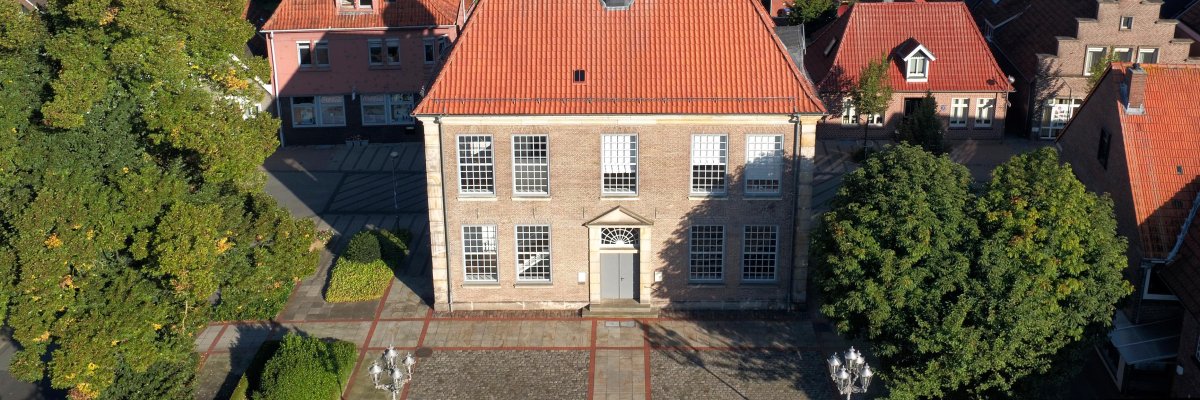It was 75 years ago on 20 January 1950 that nine dedicated anglers in the former "van Dyken" restaurant in Neuenhaus heralded the birth of the Neuenhaus Angling Club. The aim was to come together as a club in order to be able to lease the fishing rights of the Princely Domain Chamber and the town of Neuenhaus on the Vechte and Dinkel rivers as one large community with the best possible prospects.
However, 20 January was the second attempt to found the association. Two days earlier, on 18 January, hardly any interested people had responded to the anglers' call, so the founding event had to be postponed.
The two initiators, the retired savings bank businessman Johannes Borchers and the master hairdresser Gerhard de Witte, then managed the fortunes of the association for several years and created a framework for the association that is still in place today.
In the same year, the enterprising Johannes Borchers was also the initiator of the "re-establishment" of SV Borussia 08 Neuenhaus e.V., which wanted to become independent again after being brought into line with the gymnastics and sports club under the National Socialists in 1937.
The club grew to 75 members in the very first year of its foundation and in the following years, stretches of water on the Vechte and Dinkel rivers were gradually leased. The anglers were greatly helped by the fact that the town council was very sympathetic to the project and transferred the Neuenhaus fishing rights to the still young and not very financially strong association for "small money". In return, the anglers undertook to maintain the waters and regulate the fish population.
This was not easy at the time, as the two rivers Vechte and Dinkel had lost their water quality over decades due to uncontrolled discharges. Water pollution control was still in its infancy in the 1950s.
Another problem was the so-called "pool walkers" (term for a form of net fishing that was widespread in the county). From today's perspective, this method was not sustainable and caused great damage to the fish stock.
While angling was still traditionally used to procure food until the 1950s, it increasingly developed into a "sport" in the 1980s. Fishing competitions, which were held as national, European and world championships, enjoyed great popularity. Nevertheless, "sport fishing" gradually became less and less recognised by society in Germany. The concept of animal welfare became increasingly important in legislation and case law and has even been enshrined in Article 20a of the Basic Law since 2002. Competitions and championships from a sporting point of view have long been banned in Germany. Club-internal fishing events may only be held as so-called "Hegefischen" (game fishing) to record and control stocks in accordance with strict rules.
The anglers had to redefine themselves and did so in Neuenhaus back in the 1980s under the direction of the then chairman Hartmut Crede. The committed NABU member and now honorary chairman of the fishing club led the Neuenhaus anglers into a new philosophy, which was characterised by "environmental, nature, landscape and species protection". The original "angling club" became the "fishing club". This has been the official name of the club ever since.
Today, it is a matter of course for Neuenhaus anglers to sustainably nurture and care for their waters and fish stocks. The principle is to regulate the fish population by creating natural feeding grounds and habitats. Stocking measures are reduced to the bare minimum. Over the years, the angling club has successfully restored several leased former sand extraction sites in the municipality of Gölenkamp, which experience has shown to be poor in nutrients, to a very good water quality and a balanced fish population by introducing dead wood and targeted planting of water-compatible plants.
The most outstanding project, however, is the construction of an almost 360 metre long "oxbow lake" on the Moss in Gölenkamp, which the fishing club completed last summer after more than four years of planning and construction with the support of several environmental and nature conservation foundations, the joint municipalities of Neuenhaus and Uelsen (together with the water and wastewater association), the district, the Lower Saxony State Agency for Water Management, Coastal Defence and Nature Conservation, the Vechte Association and the Angling Association in the Weser-Ems State Fishing Association, as well as our own financial resources. This highly ambitious project was the first time that the angling association had ventured to build a body of water with biotope-like structures, which is not only a spawning and refuge area for the local fish species, but also a habitat for breeding and nesting birds and insects.
For this project, the fishing club achieved an outstanding 2nd place in the Lower Saxony competition "Bach im Fluss" in September.
The initiator of the project and former chairman Friedhelm Gießmann passed away at the beginning of 2022, before construction could actually begin.
For years, the Neuenhaus fishing club has also supported various projects to protect endangered species, working closely with the angling association in the Weser-Ems state fishing association and nature conservation organisations. Of particular importance here is the eel stocking programme of the state of Lower Saxony to protect this endangered species, which the angling club has been supporting financially and actively since 2011.
Today, the association has grown to more than 800 members and has fishing rights on the Dinkel, Vechte, Lee and Grenz-Aa rivers, as well as on the Horsink's ponds and the Visscher's pond in Gölenkamp.
In the anniversary year 2025, Chairman Hans-Jürgen Klünder is delighted to have the support of a well-organised Board of Directors and many volunteers in water protection and fisheries supervision.
The anniversary will of course also be celebrated in style. The dates will be announced promptly in the daily press and the association's media.

